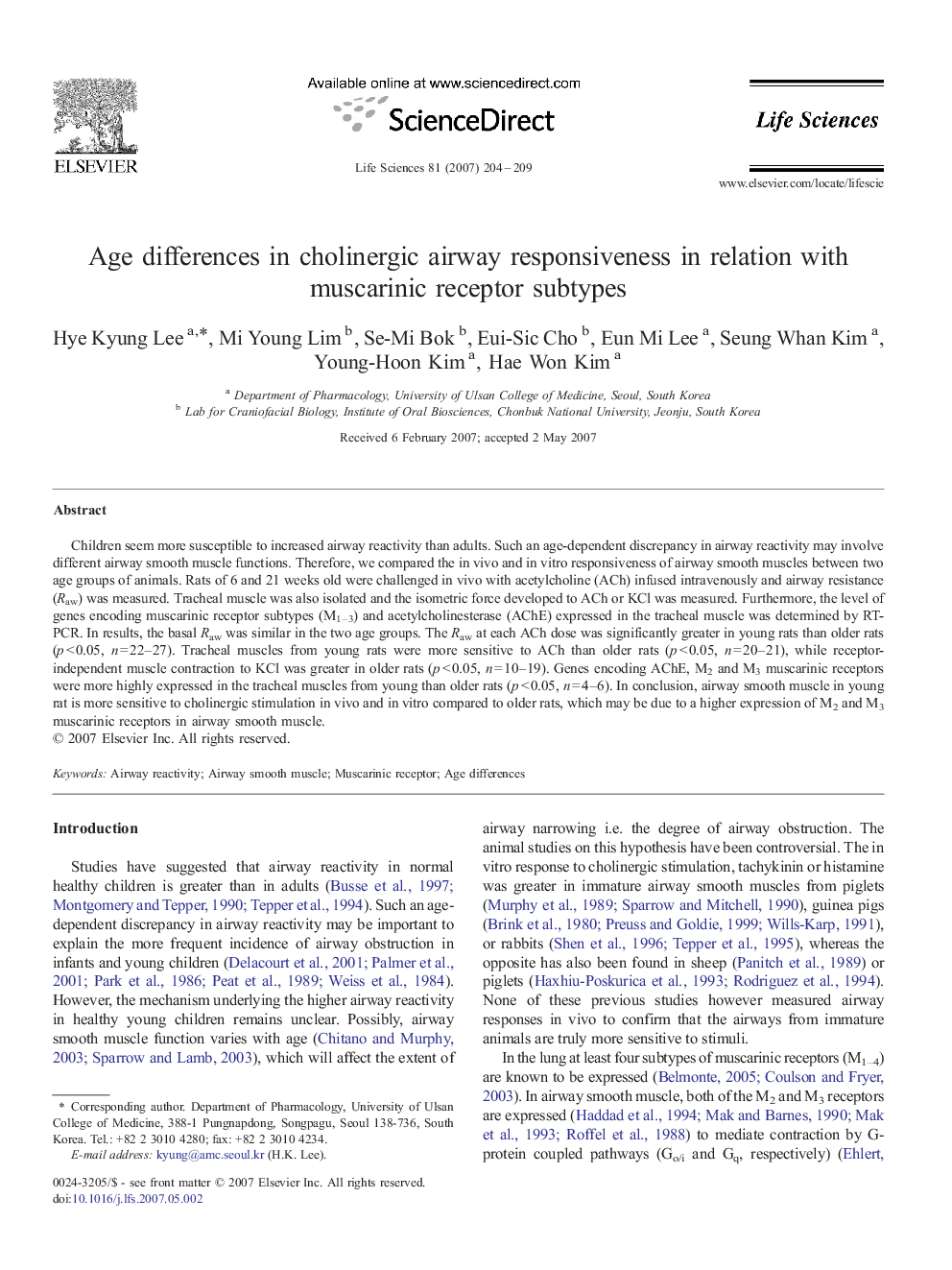| Article ID | Journal | Published Year | Pages | File Type |
|---|---|---|---|---|
| 2553471 | Life Sciences | 2007 | 6 Pages |
Children seem more susceptible to increased airway reactivity than adults. Such an age-dependent discrepancy in airway reactivity may involve different airway smooth muscle functions. Therefore, we compared the in vivo and in vitro responsiveness of airway smooth muscles between two age groups of animals. Rats of 6 and 21 weeks old were challenged in vivo with acetylcholine (ACh) infused intravenously and airway resistance (Raw) was measured. Tracheal muscle was also isolated and the isometric force developed to ACh or KCl was measured. Furthermore, the level of genes encoding muscarinic receptor subtypes (M1–3) and acetylcholinesterase (AChE) expressed in the tracheal muscle was determined by RT-PCR. In results, the basal Raw was similar in the two age groups. The Raw at each ACh dose was significantly greater in young rats than older rats (p < 0.05, n = 22–27). Tracheal muscles from young rats were more sensitive to ACh than older rats (p < 0.05, n = 20–21), while receptor-independent muscle contraction to KCl was greater in older rats (p < 0.05, n = 10–19). Genes encoding AChE, M2 and M3 muscarinic receptors were more highly expressed in the tracheal muscles from young than older rats (p < 0.05, n = 4–6). In conclusion, airway smooth muscle in young rat is more sensitive to cholinergic stimulation in vivo and in vitro compared to older rats, which may be due to a higher expression of M2 and M3 muscarinic receptors in airway smooth muscle.
